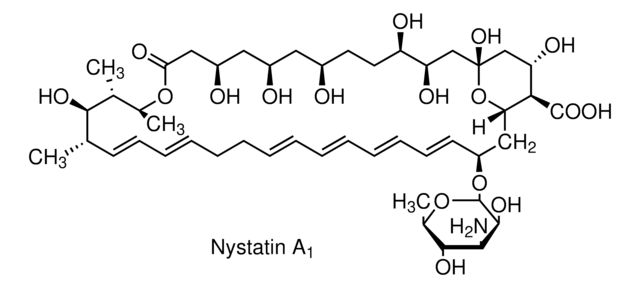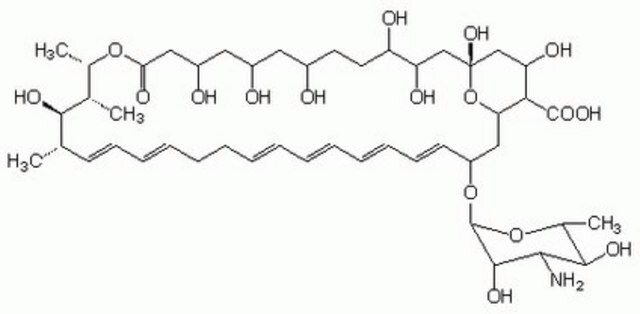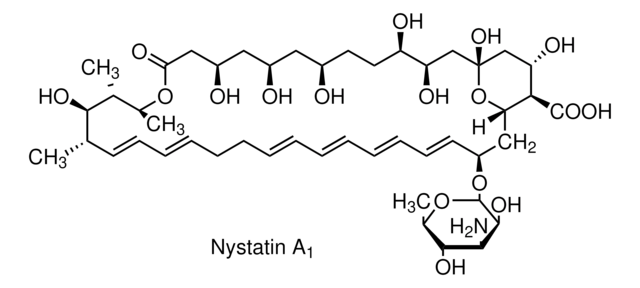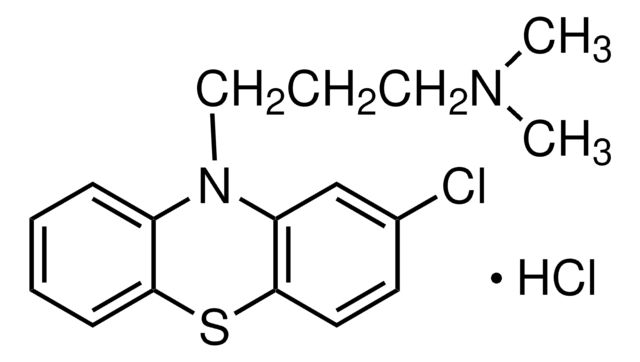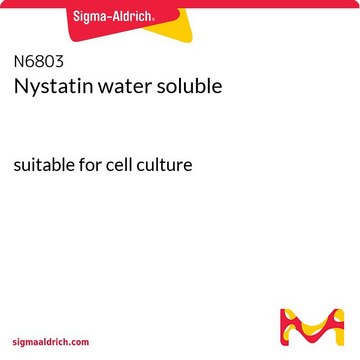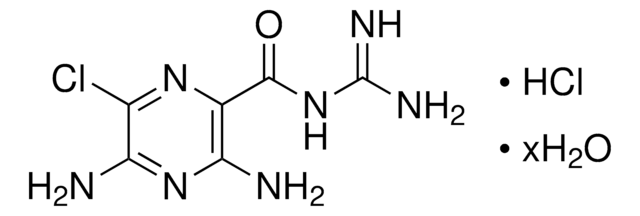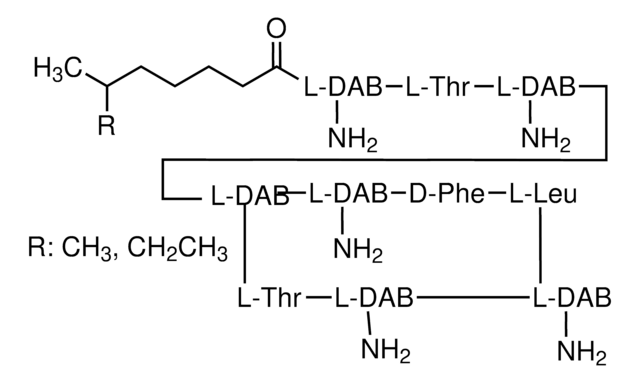N6261
Nystatin
powder, suitable for cell culture, BioReagent
Synonym(s):
Fungicidin, Mycostatin
About This Item
Recommended Products
product name
Nystatin, powder, BioReagent, suitable for cell culture
product line
BioReagent
Quality Level
form
powder
potency
≥4,400 per mg
technique(s)
cell culture | mammalian: suitable
solubility
H2O: insoluble
antibiotic activity spectrum
fungi
yeast
Mode of action
cell membrane | interferes
storage temp.
−20°C
SMILES string
O[C@@H]([C@H](C)[C@H](C)O1)[C@@H](C)/C=C/C=C/CC/C=C/C=C/C=C/C=C/[C@H](O[C@@H]2O[C@H](C)[C@@H](O)[C@H](N)[C@@H]2O)C[C@@]3([H])[C@H](C(O)=O)[C@@H](O)C[C@](O)(O3)C[C@@H](O)[C@H](O)CC[C@@H](O)C[C@@H](O)C[C@@H](O)CC1=O
InChI
1S/C47H75NO17/c1-27-17-15-13-11-9-7-5-6-8-10-12-14-16-18-34(64-46-44(58)41(48)43(57)30(4)63-46)24-38-40(45(59)60)37(54)26-47(61,65-38)25-36(53)35(52)20-19-31(49)21-32(50)22-33(51)23-39(55)62-29(3)28(2)42(27)56/h5-6,8,10-18,27-38,40-44,46,49-54,56-58,61H,7,9,19-26,48H2,1-4H3,(H,59,60)/b6-5+,10-8+,13-11+,14-12+,17-15+,18-16+/t27-,28+,29-,30+,31+,32+,33+,34-,35+,36+,37-,38-,40+,41-,42+,43+,44-,46-,47+/m0/s1
InChI key
VQOXZBDYSJBXMA-QEKUPDCNSA-N
Looking for similar products? Visit Product Comparison Guide
Related Categories
General description
Application
- for the treatment of human macrophage cell line U937, to study the effect of nystatin on the production of IL-8 (interleukin 8) by silver nanoparticle-treated U937 cell line
- to determine its effect on intracellular accumulation of OxLDL (oxidized low density lipoprotein) mediated by SR-BI (scavenger receptor class B type I) in COS-7 cell line
- as a lipid raft modulator on mice macrophages to study the relationship between increased number of lipid rafts and the heightened response of TNF-α (tumor necrosis factor)
Biochem/physiol Actions
Antimicrobial spectrum: Nystatin acts against fungi, yeasts and molds.
Caution
Preparation Note
Other Notes
related product
Storage Class Code
11 - Combustible Solids
WGK
WGK 2
Flash Point(F)
Not applicable
Flash Point(C)
Not applicable
Personal Protective Equipment
Certificates of Analysis (COA)
Search for Certificates of Analysis (COA) by entering the products Lot/Batch Number. Lot and Batch Numbers can be found on a product’s label following the words ‘Lot’ or ‘Batch’.
Already Own This Product?
Find documentation for the products that you have recently purchased in the Document Library.
Customers Also Viewed
Our team of scientists has experience in all areas of research including Life Science, Material Science, Chemical Synthesis, Chromatography, Analytical and many others.
Contact Technical Service